
Delivering Effective Test Management
Delivering Effective Test Management
Overall Course Summary
A 2-day course which aims to help both new and experienced explore ways of improving the way they manage both their test teams and the work which is assigned to them.
Download Course Summary
The goal of test management must always be to deliver an efficient test process which makes best us of the time and resources available for testing at any given point in time. This course looks at ways in which an effective test manager can create an environment in which an effective test process can be delivered.
Day 1 of the course will focus on how to build an effective test team and on ways to build good relationships with other stakeholders.
Day 2 will show ways of making test strategies and test plans more relevant to the day to day process of delivery
The course is designed to be interactive and attendees will be expected to contribute their own experiences (good and bad) as we move from test preparation through defect management to signoff and go-live
The course assumes that attendees have a basic knowledge of the testing process but is designed not just for fulltime testers but for anyone with a vested interest in improving the quality of testing on the projects with which they are involved.
Day 1 – The Nuts and Bolts of Effective Test Management
Session
Description
Training Material
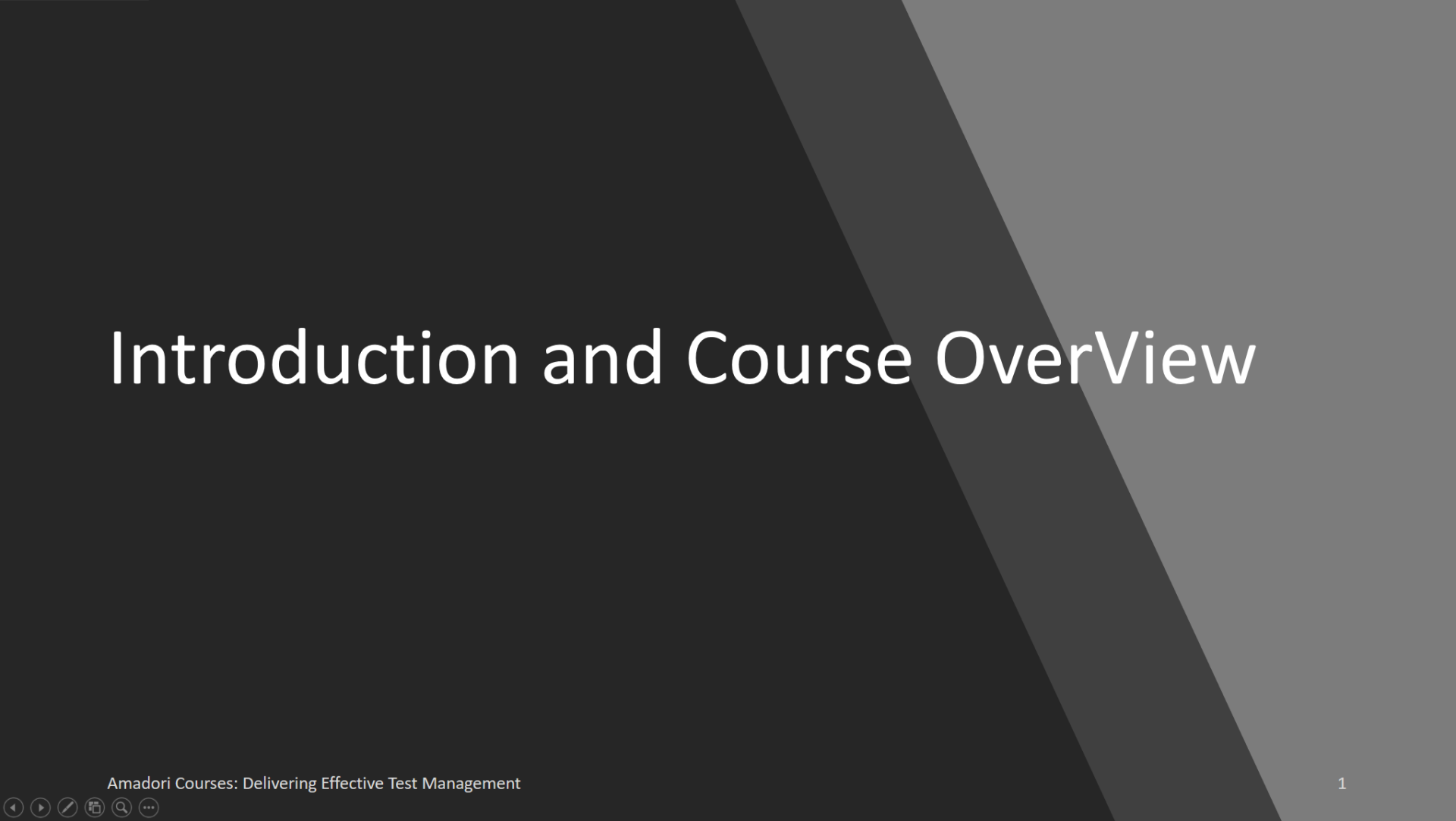
- Provides an overview of the whole course.
- Day 1 will focus on interpersonal elements of test management
- On managing specific stages in the testing process successfully
- On creating and developing effective test teams
- On building effective relationships with other stakeholders
- Day 2 of the course will focus on
- How to make test strategies and test plans living and dynamic documents which actively contribute to successful delivery
- How to use test reports and metrics not just to record progress but to improve delivery moving forward
- Stress that test management is a mixture of both formal process and documentation and informal relationship building
- An effective test manager needs to excel in both areas
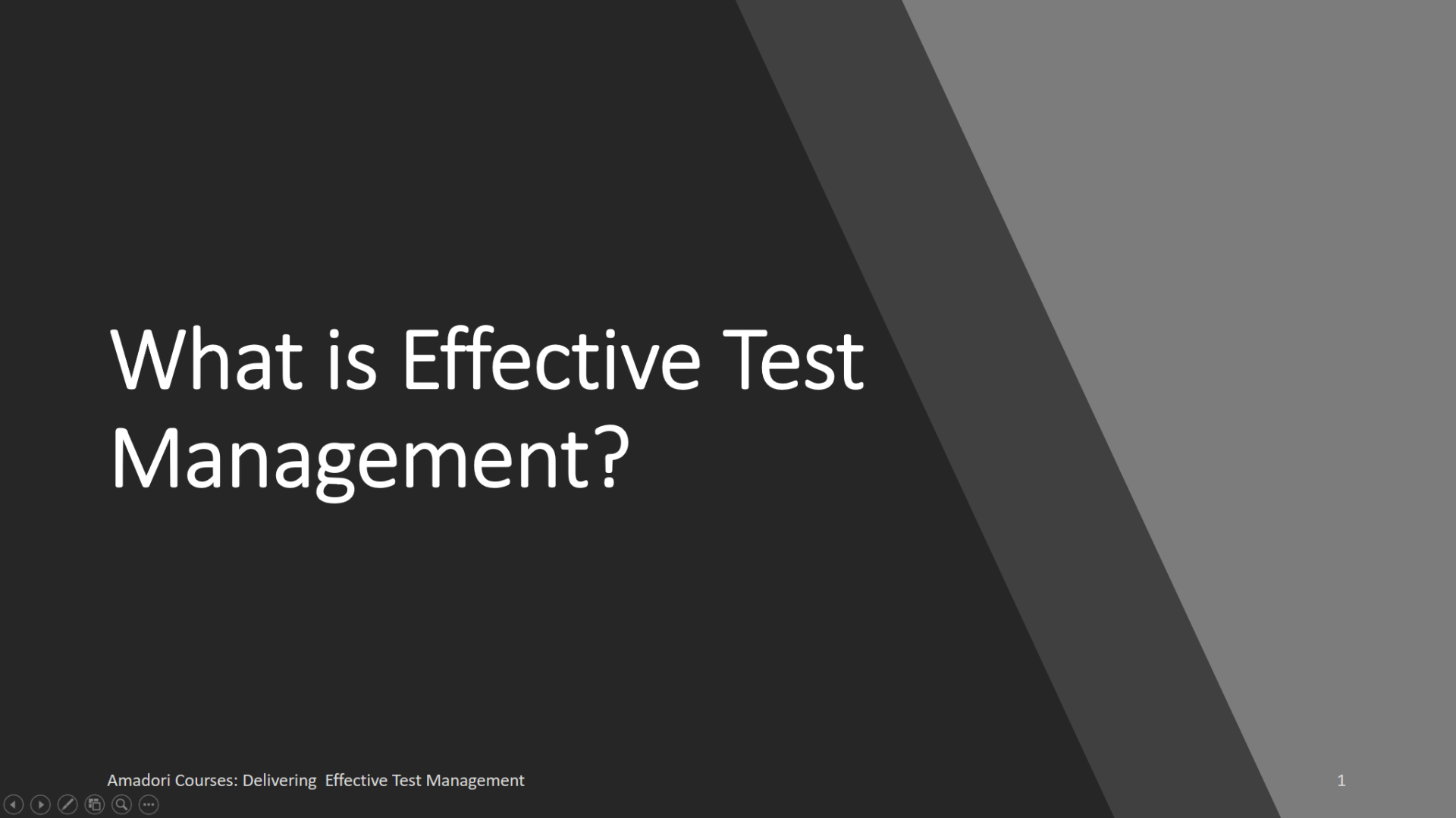
- An Effective Test Manager needs to fulfil several very different roles, often at the same time
- This session sets out what these different roles are, in readiness for later sessions which detail which will examine each in more detail, showing techniques and processes by which effective test management can be delivered
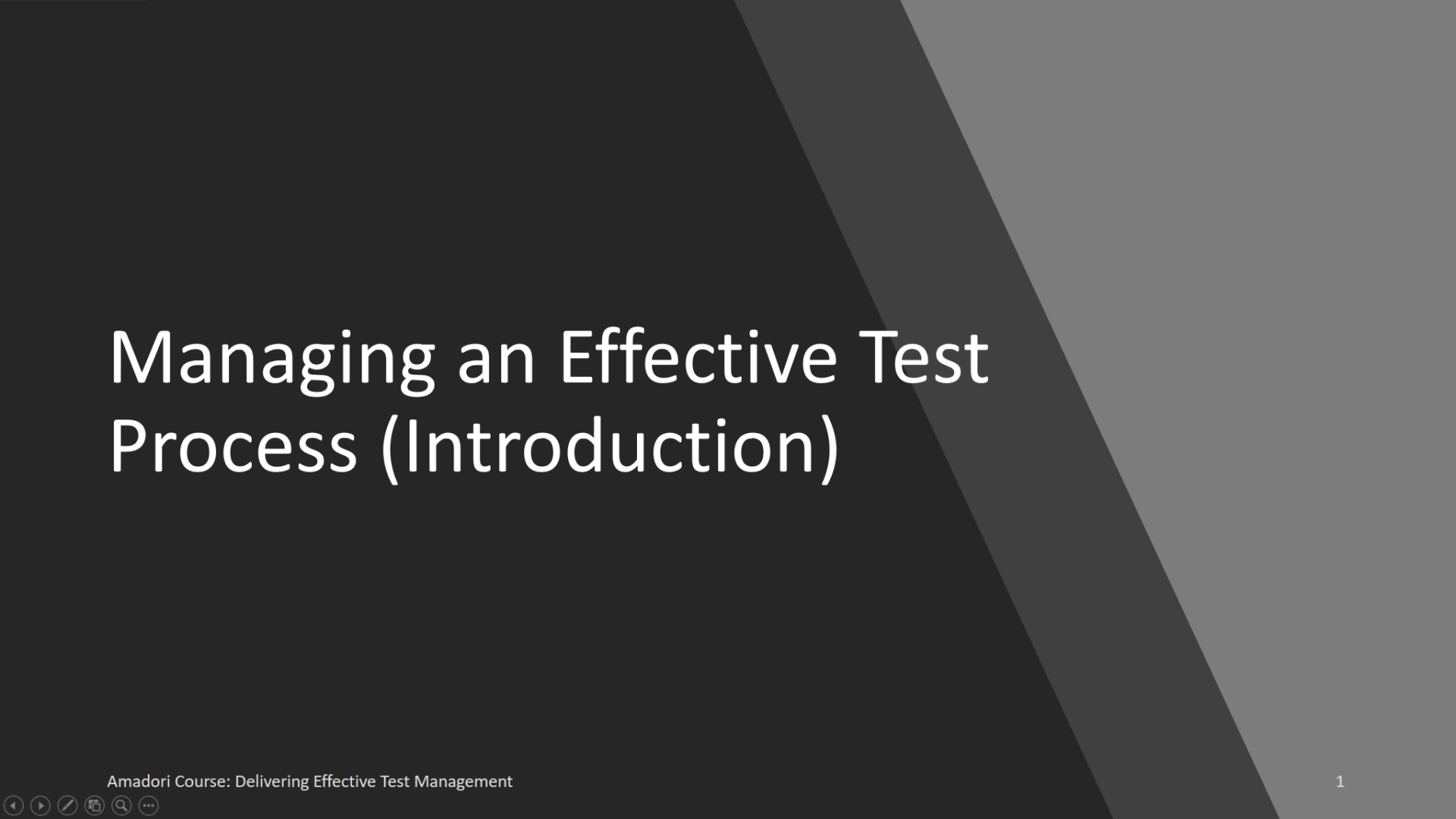
- The session begins by summarising the various elements an Effective Test Process must contain
- It explains to be Effective a Test Manager must deliver this process across multiple test phases at the same time each of which is competing for their limited and resources
- The qualities required to effectively manage testing are summarised
- Although the task of test management may sometimes appear to be one that is impossible to do well, there are processes and techniques which can help give Test managers a degree of control and allow issues to be addressed early before they cause too much long lasting damage
- It is these which the next 4 sessions will cover
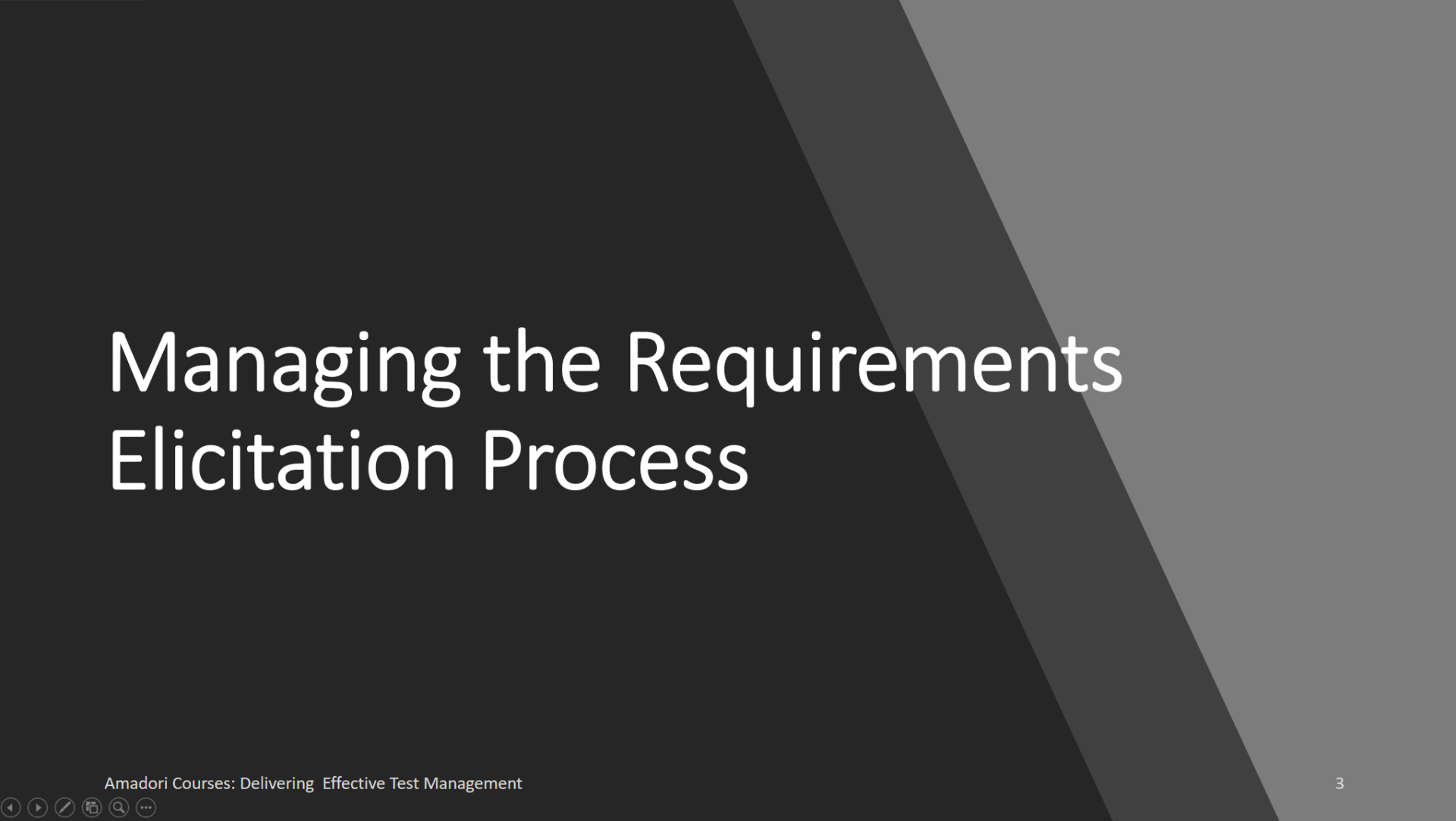
- Maintaining control of the requirements analysis phase is fundamental to effective Test Management
- In an ideal world test requirements are provided to the test team in a single document and are clear and complete
- In the real world the very opposite is often the case.
- This session covers methods in which Test Managers can stay on top of this stage in the test process, outlining processes by which
- overall requirements coverage can be properly measured
- missing or incomplete requirements are identified and addressed
- the analysis phase does not become bogged down as a result of ever changing requirements
- And tips as to how to effectively address the problems which often arise in this area
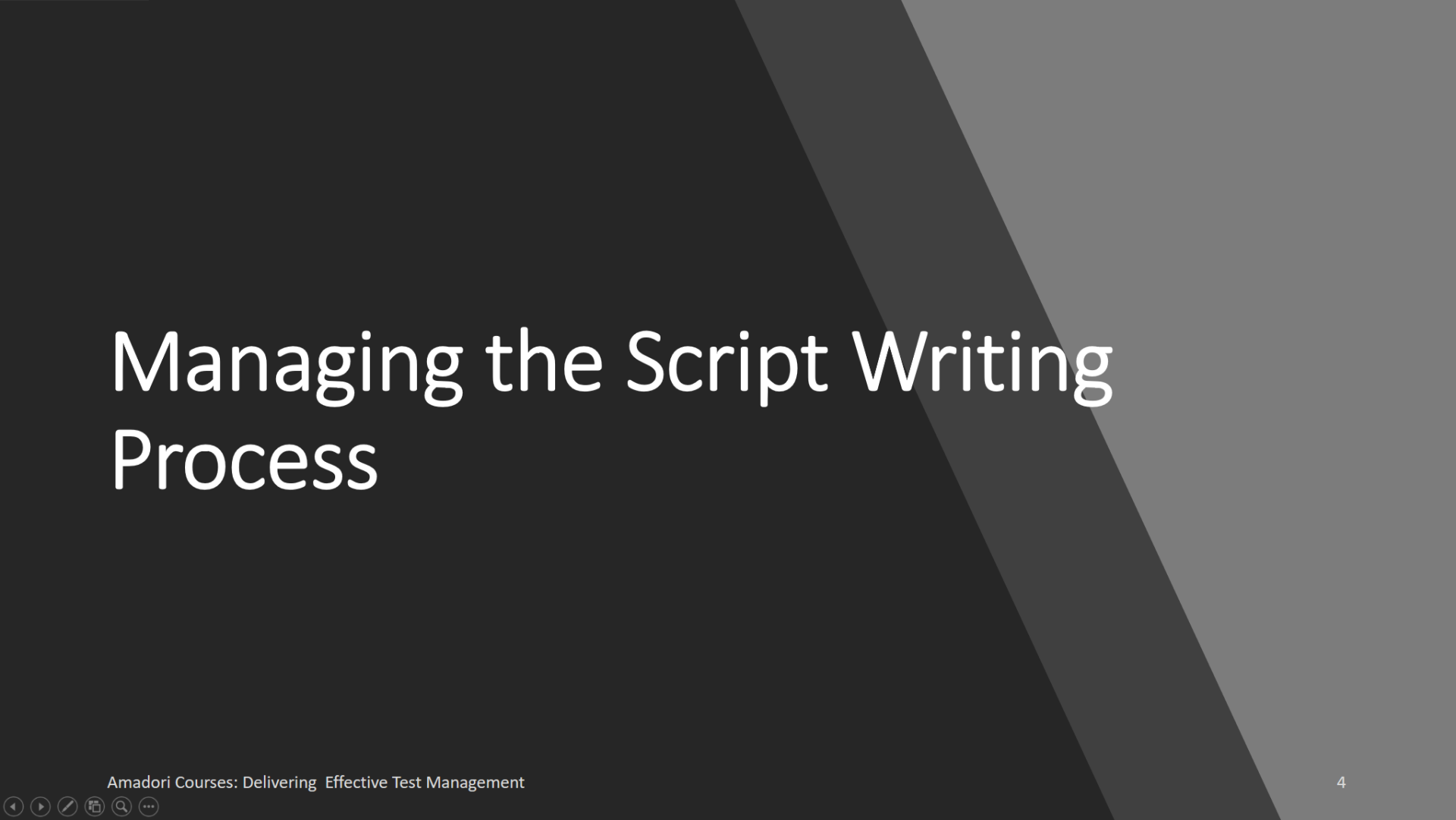
- This session will cover techniques designed to
- turn requirements into test cases as quickly as possible
- ways of making tests modular to allow their reuse in multiple phases of testing
- It will also address
- tailoring the format of tests to meet the needs of their expected audience
- the important of building "rattle" and regression test packs to effective test automation
- And cover the most effective way of reporting script writing progress and how these metrics can be used to ensure that maximum scripting coverage is achieved with the time and resource available
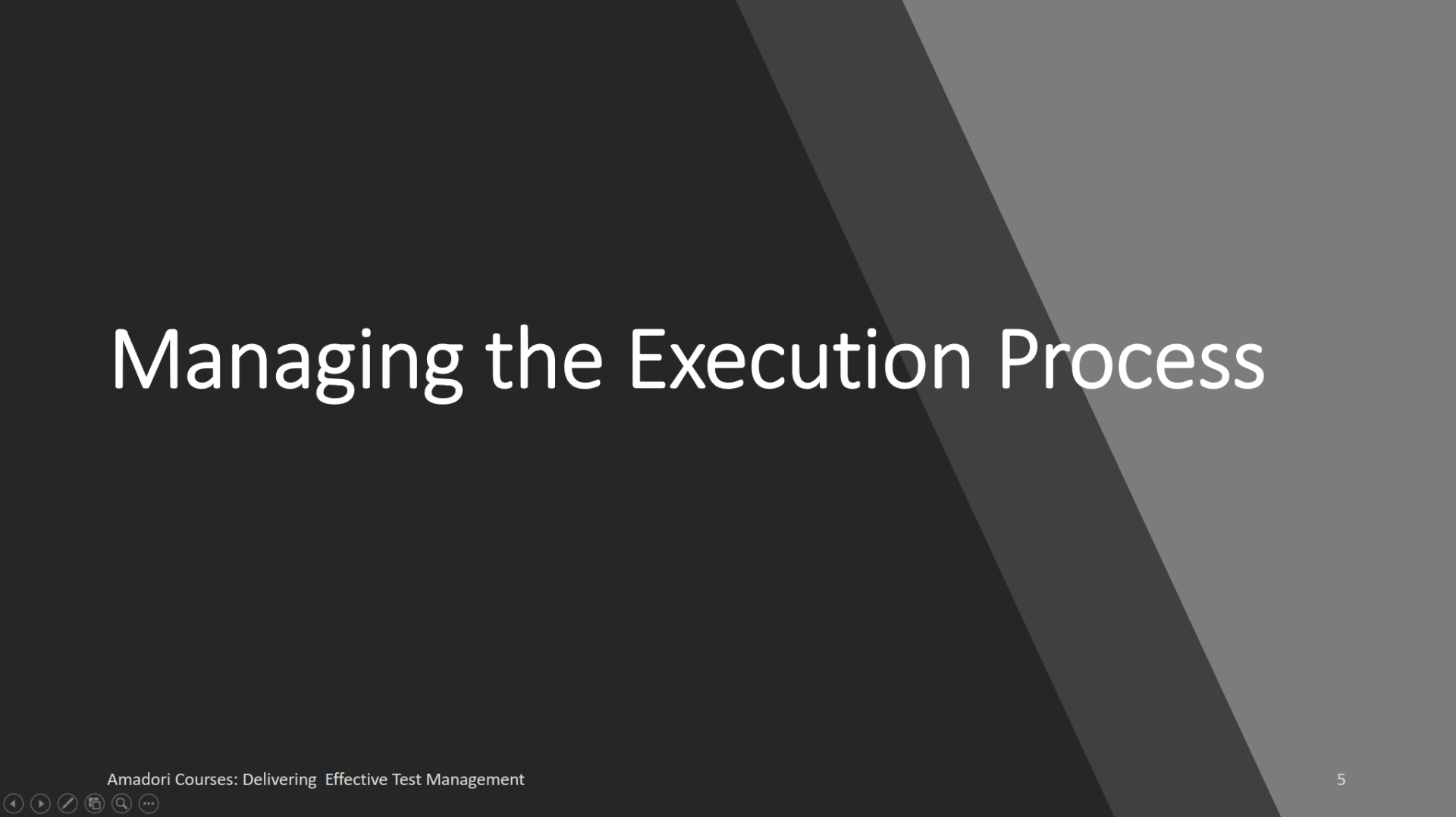
- In an ideal world Test would execute every single test they write.
- In the real world, delays in delivery, system downtime and lack of resource often mean this isn't possible
- This session details ways in which the Effective Test Manager can
- Ensure that the most effective use is made in terms of testing coverage of the time and resource available
- ways to manage the defect management process effectively
- How best to report the risk posed by not completing testing in an area
- How to use execution metrics to estimate a sensible target for go-live
- It will explain how best to deal with the impact to execution of issues such as "defect churn" and late changing requirements
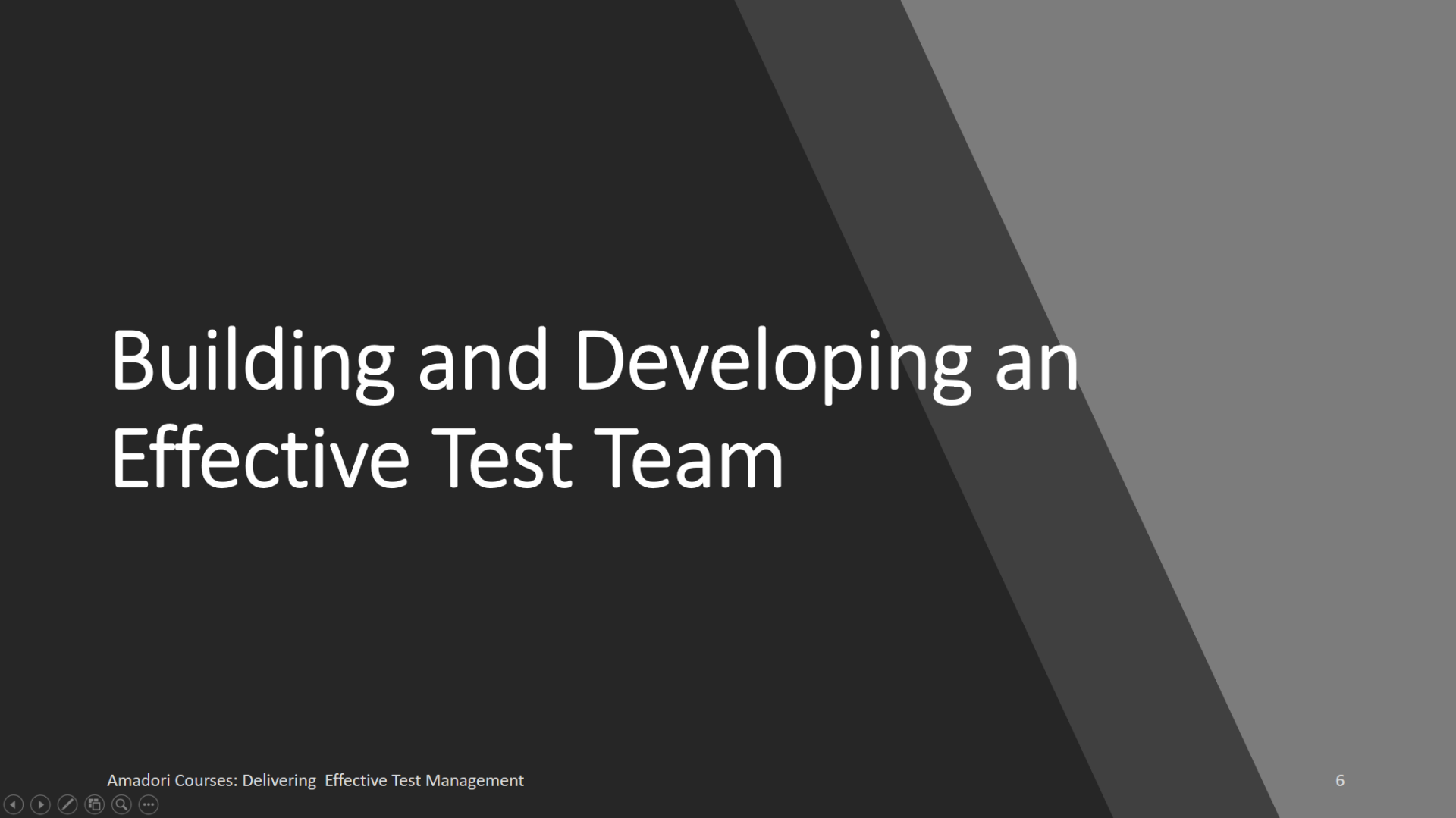
- A Test Manager is rarely if ever in a position to recruit a team with exactly the right set of skills and expereince for the task in hand
- This session will look at ways of
- identifying strengths and weaknesses within the current team
- mapping this against current and expected work
- "fitting square blocks into square holes"
- consciously addressing these gaps via hiring and/or training
- It will also address ways of keeping the team fit for purpose as careers develop and the nature of the work you are being asked to do changes
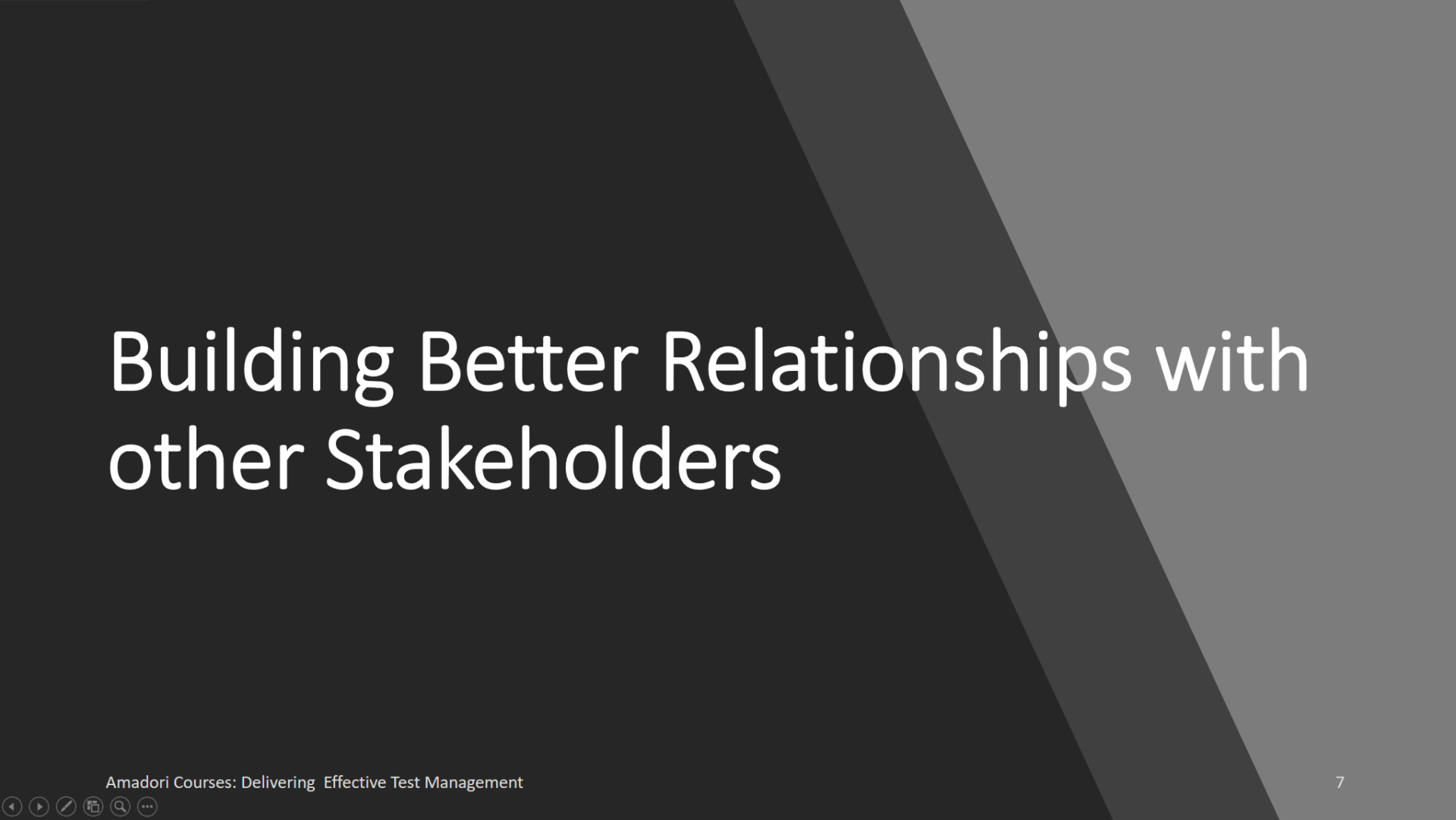
- In an ideal world Test would execute every single test they write.
- In the real world, delays in delivery, system downtime and lack of resource often mean this isn't possible
- This session details ways in which the Effective Test Manager can
- Ensure that the most effective use is made in terms of testing coverage of the time and resource available
- ways to manage the defect management process effectively
- How best to report the risk posed by not completing testing in an area
- How to use execution metrics to estimate a sensible target for go-live
- It will explain how best to deal with the impact to execution of issues such as "defect churn" and late changing requirements
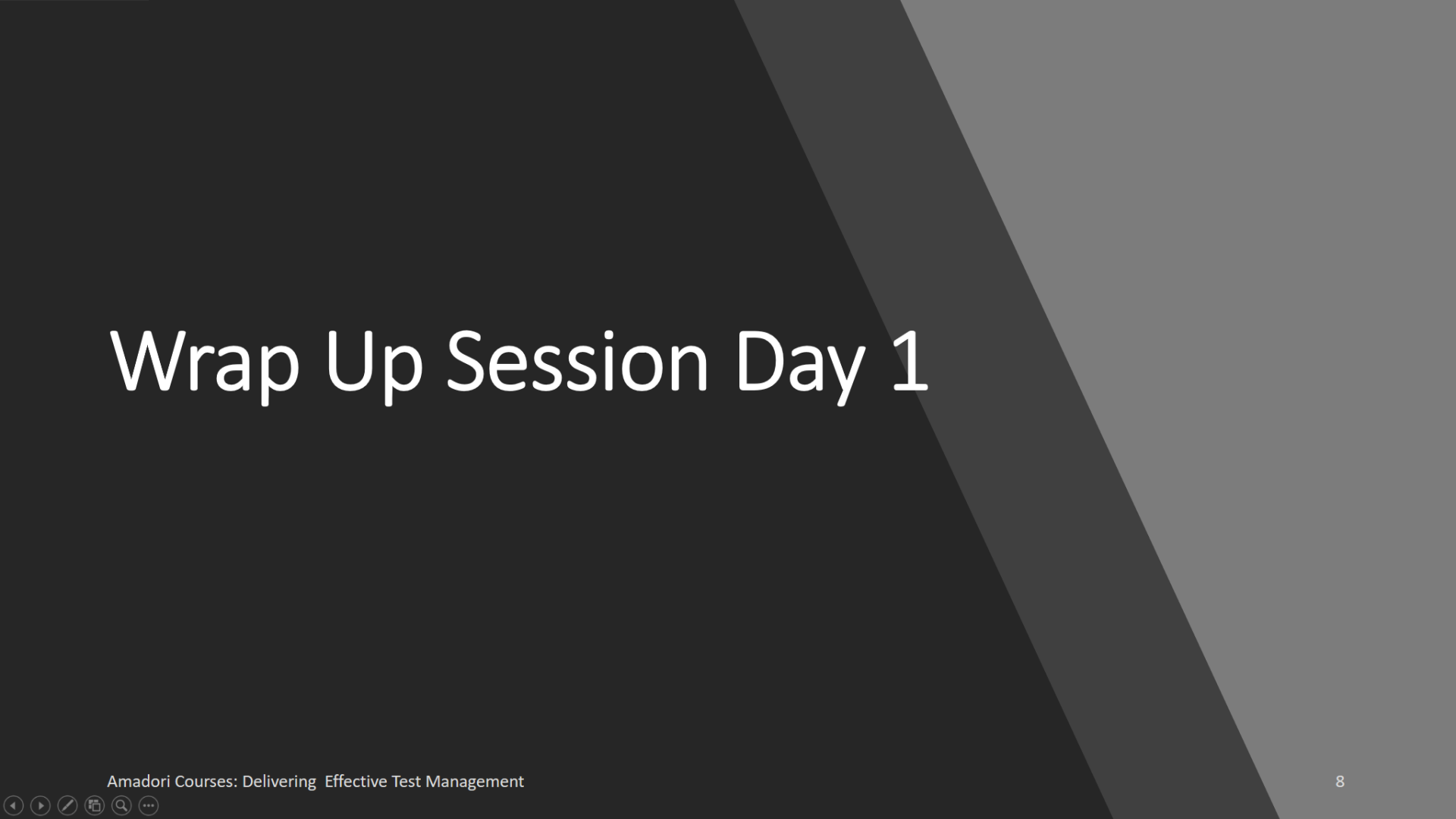
Recap what has been covered on Day 1 and look forward to Day 2
- Confirm start and end timings for the next day
- Field any questions arising
Emphasise that
- Effective test management is all about creating an environment in which an effective test process can be followed.
- An effective test manager will build good working relationships with other stakeholders and manage testing in using a risk-based approach
Day 2 – The Wider Picture
Session
Description
Training Material
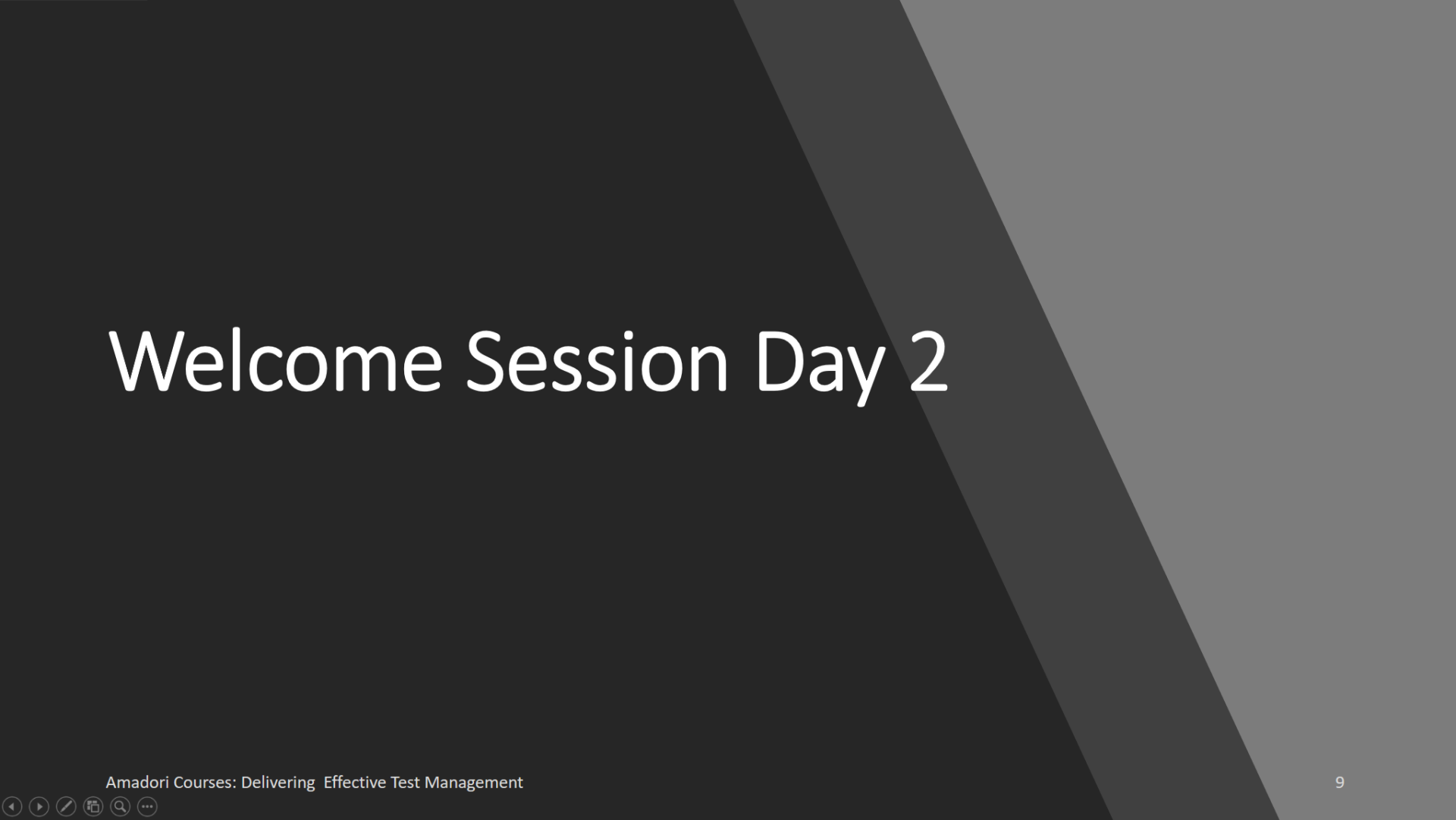
- Summarises what was covered during Day 1
- Explain how this relates to the subjects which will be covered today
- Provides approximate timings for breaks etc.
- Answer any questions which have occurred to attendees overnight
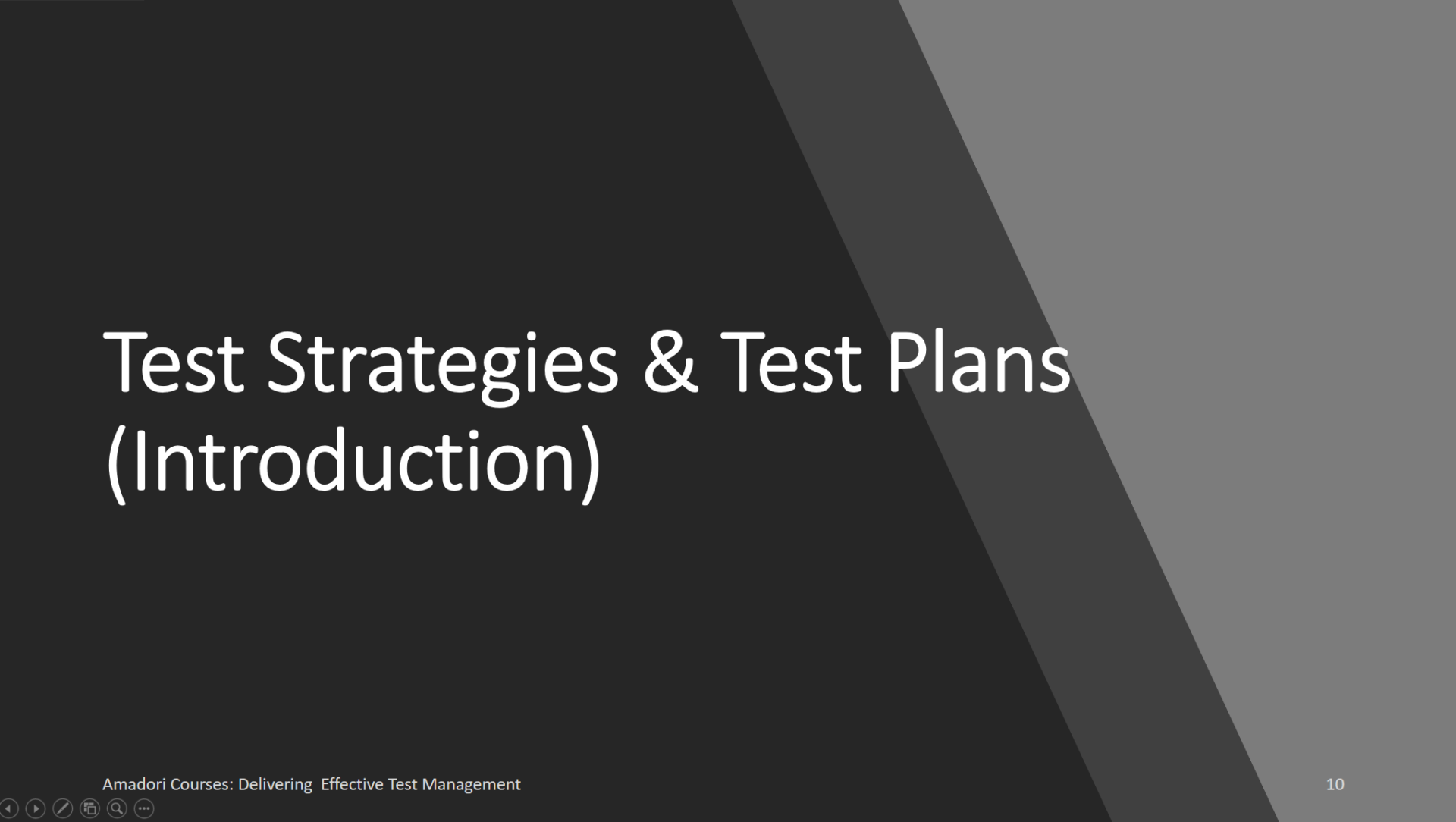
- This session explains the key difference between Test Strategies and Test Plans
- Defines the different purpose to which document type should be put
- And explains why in practice these documents so often end up having less impact than planned
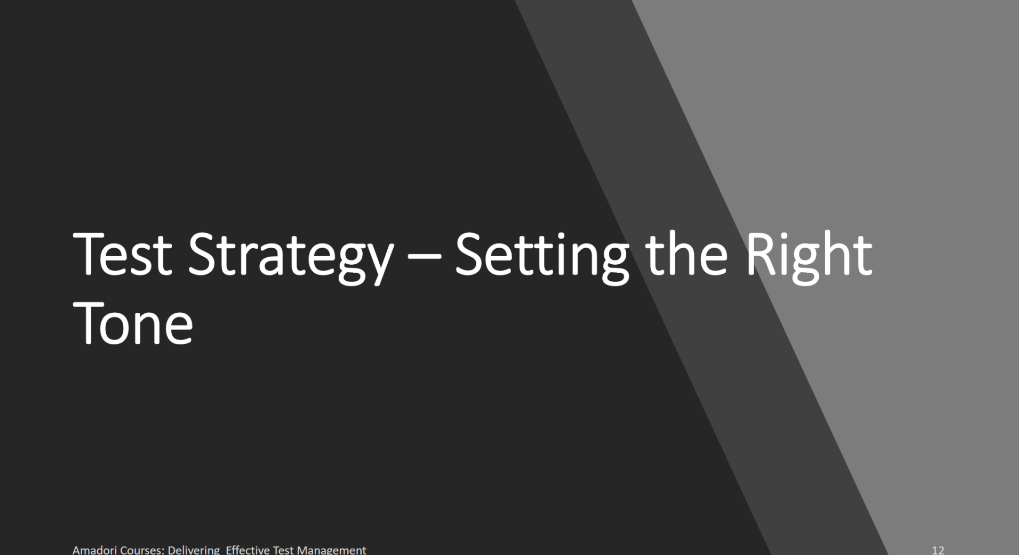
- Your Strategy is much more likely to win widespread acceptance if you adopt the right tone
- This session will cover
- The best point at which to produce a test strategy
- How these documents should relate to the overall project strategy
- The best way to address your audience
- Discuss ways of creating a favourable environment into which your test strategy will be presented
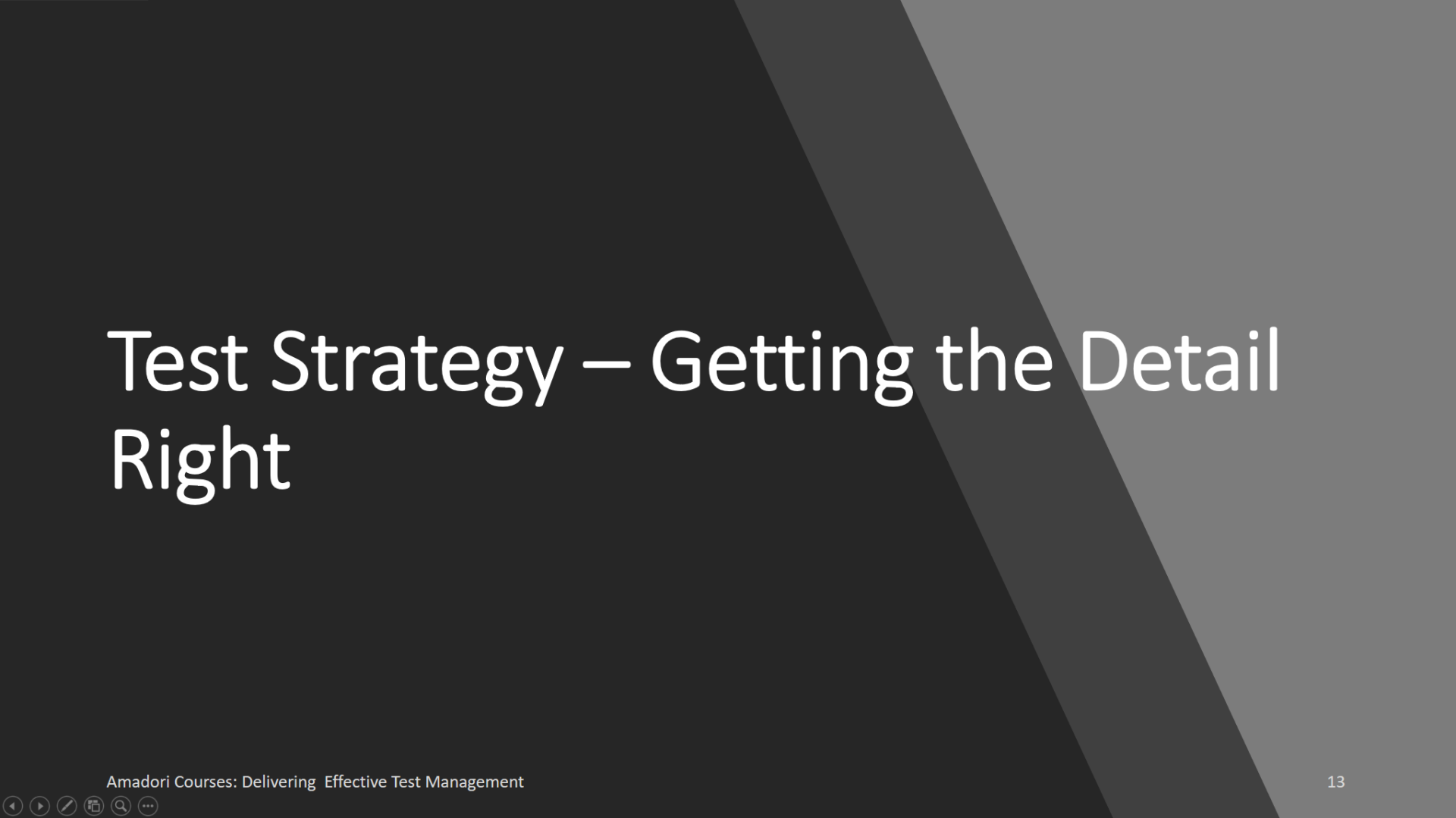
- No 2 test strategies will ever be exactly the same as the scope and priorities of every project are different
- Rather than working through a predefined list of topics which ALWAYS have to be included an effective test manager should
- Include only topics which are of direct relevance
- Give priority to those topics which are most crucial to a successful delivery
- Include success criteria against which the delivery of the strategy can be objectively judged
- Regularly review their strategy against the progress of the project in real life and take appropriate action which a significant divergence is identified
- Exercise
- Ask participants to apply these principles to one of their own projects and then as a group review the results
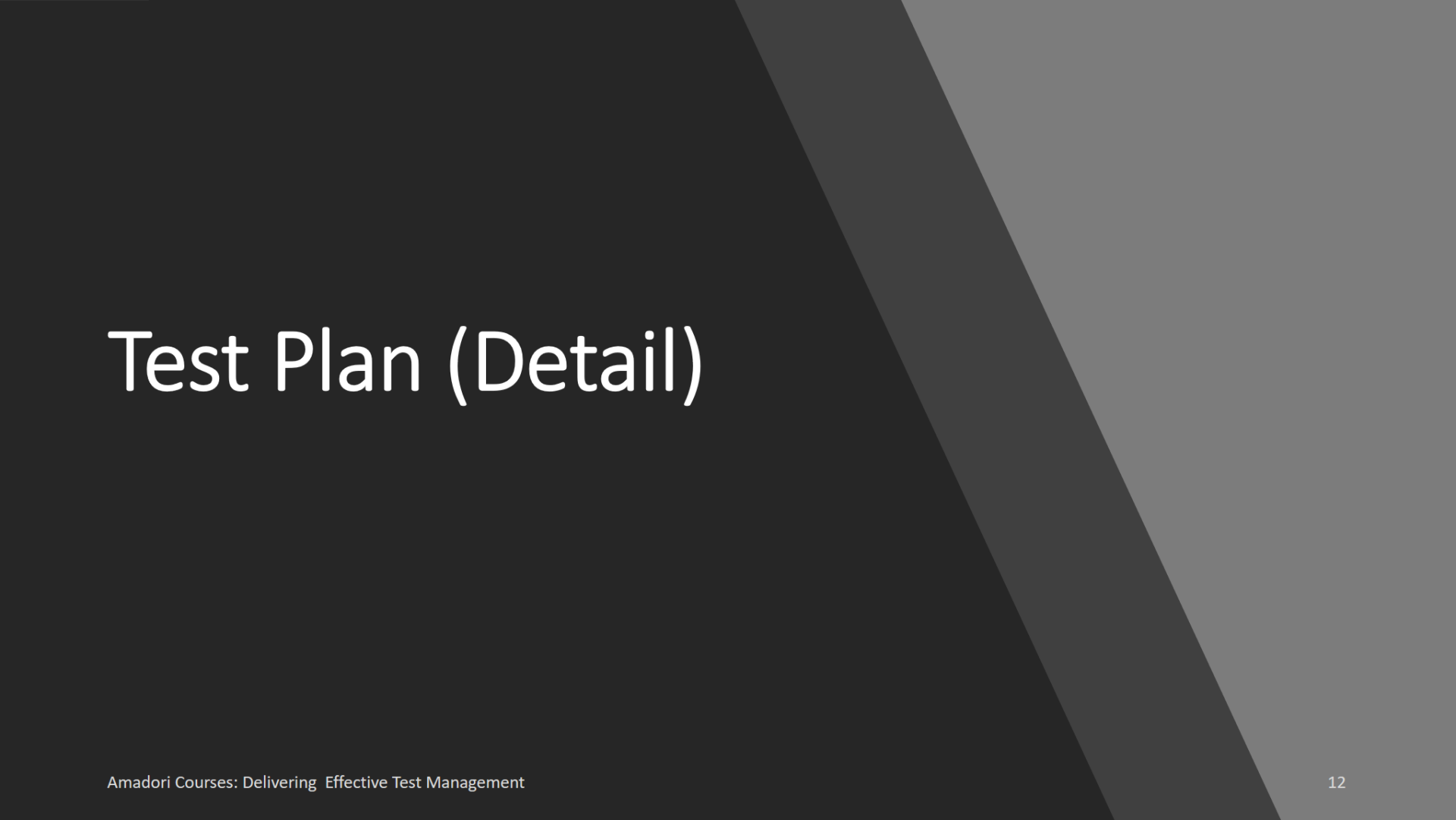
- Session Covers
- How the detail of the Test Strategy and Test Plan should interrelate
- Whether a project with multiple testphases should have One or many Plans
- What to put in a Test Plan and where to rely on other low level project documents instead
- How the Test Plan has a very different focus to the Test Strategy and how the structure and format of your document should reflect this
- How to keep test plans relevant and what to do when Test plan and reality begin to significantly diverge
- Exercise 1 – Strategy or Plan
- asks participants to decide the best way in which to document responses made to particular sets of project changes
- Exercise 2 – Strategy, Plan or Other
- A recap on the whole area asking participants across a variety of common areas to decide in each case what should be written in the Strategy, what should be set out in the Plan and what should be maintained within other low level project documents
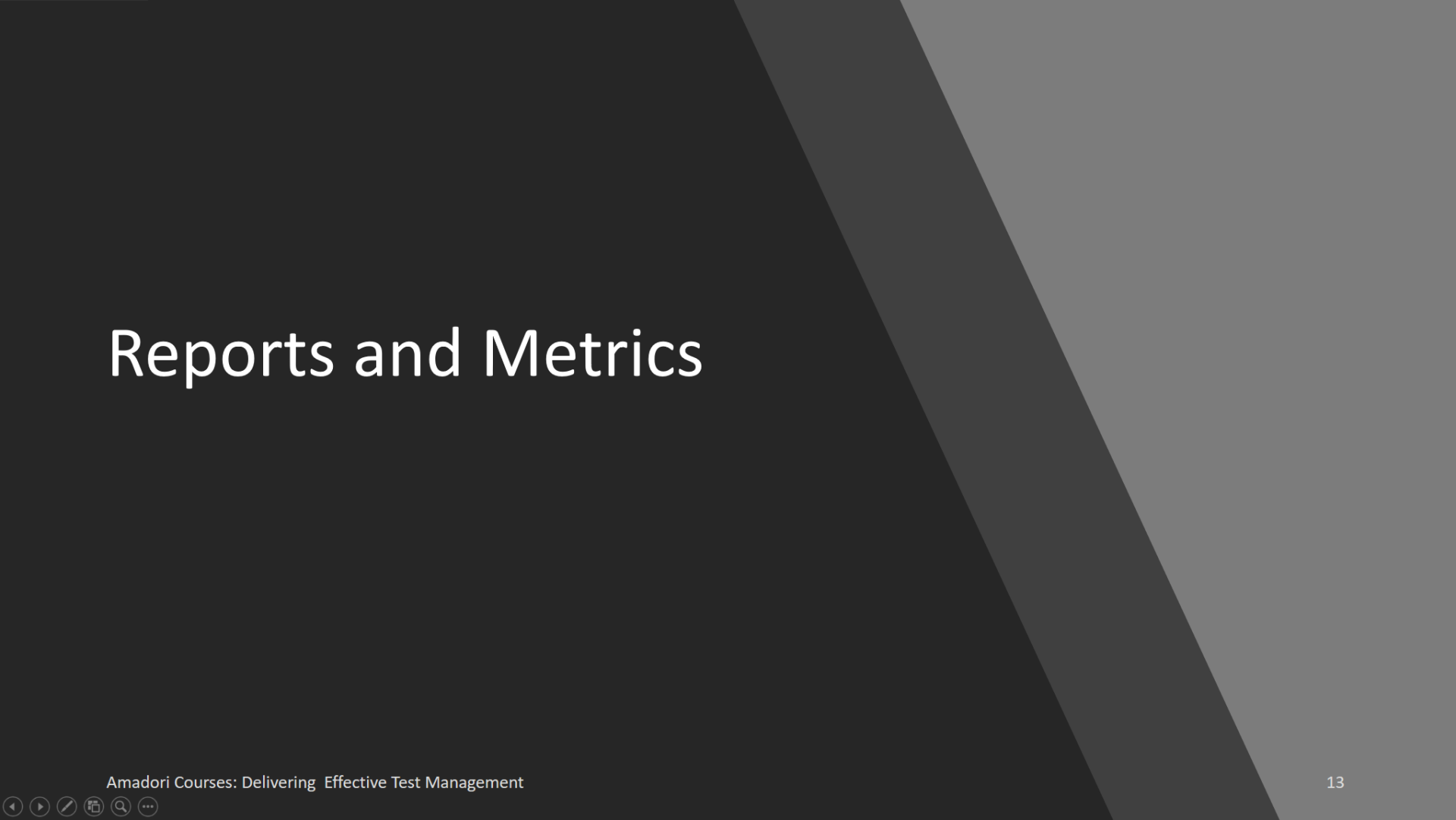
- Reports and Metrics
- Explain how test metrics and reports can provide objective data and guidance to stakeholders not just about what has happened to date but what is likely to happen going forward.
- Provide examples of how the right reports and metrics can identify issues in each of the following areas
- Requirements scope
- Development
- Delivery
- And how analysis of the results of such reports can point out ways in which such issues can best be resolved
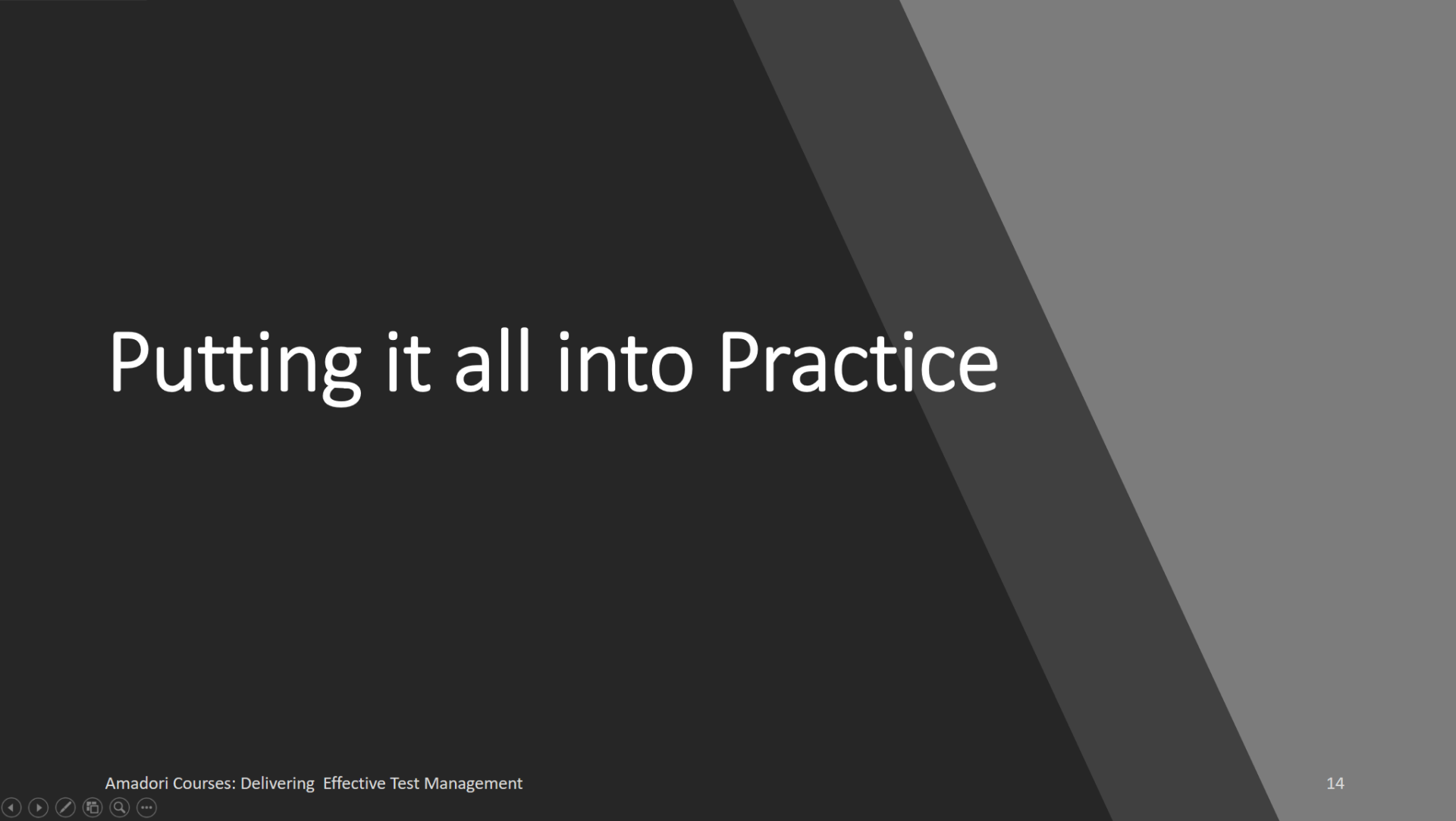
- Provide attendees with briefing notes on an organisation with a weak test process and an under resourced and inexperienced test team which is being asked to deliver several business critical project in the same 12 month period
- Exercise
- Participants will be split into groups, given time to review this material and then asked to
- Explain how they would try and mange testing in this organisation (immediate resignation is not an option)
- Outline what they see as the biggest challenges
- In the short term
- In the medium to long term
- And how they would try and address them
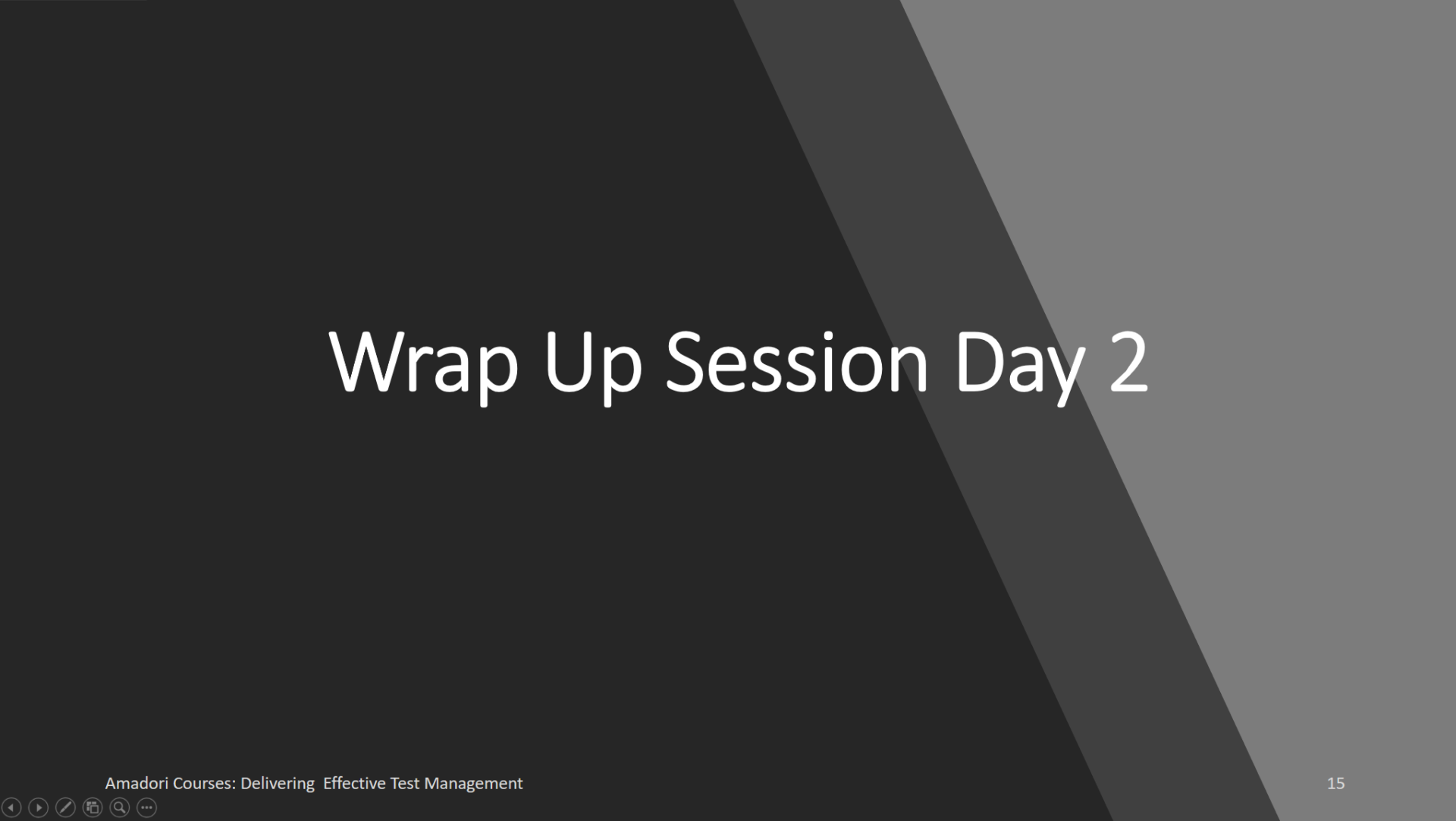
- Sessions Covers
- How the detail of the Test Strategy and Test Plan should interrelate
- Whether a project with multiple testphases should have One or many Plans
- What to put in a Test Plan and where to rely on other low level project documents instead
- How the Test Plan has a very different focus to the Test Strategy and how the structure and format of your document should reflect this
- How to keep test plans relevant and what to do when Test plan and reality begin to significantly diverge
- Exercise 1 – Strategy or Plan
- asks participants to decide the best way in which to document responses made to particular sets of project changes
- Exercise 2 – Strategy, Plan or Other
- A recap on the whole area asking participants across a variety of common areas to decide in each case what should be written in the Strategy, what should be set out in the Plan and what should be maintained within other low level project documents
